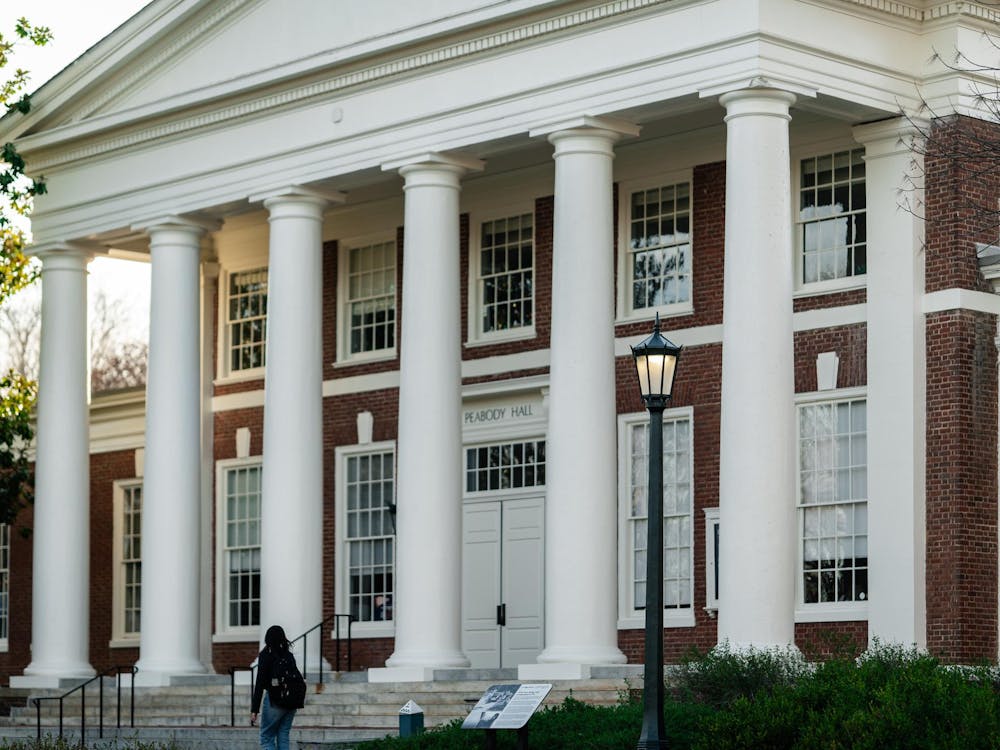At midnight Tuesday, federal legislators announced an official government shutdown because of partisan contention surrounding President Barack Obama’s signature legislative achievement, the Affordable Care Act. The impact of the government shutdown on the University is minimal for now, but a prolonged shutdown could have severe consequences on University operations.
The biggest concern for higher education institutions is the research funded by federal grants, University President Teresa Sullivan said in a statement emailed to students Tuesday. University leaders are working to identify sources of temporary funding as well as alternative options in case of an extended government shutdown, she said.
“In the short term, such work will continue unimpeded,” Sullivan said in the email. “Should the federal work-stoppage persist longer term, U.Va. and other universities face the risk of having certain federally funded research suspended.”
Research and student loans have also already been awarded for the current semester and so will not be affected, she said.
The last government shutdown was 17 years ago, when President Bill Clinton and former Speaker of the House Newt Gingrich clashed over the federal budget.
History Prof. Brian Balogh at the Miller Center said the natures of the two disagreements — one about the overall budget and one about a particular health care policy — are fundamentally different.
“The Republicans are not demanding any action on the deficit,” Balogh said. “They are demanding for a delay in the implementation of Obamacare. I don’t think the takeaway [from the shutdown] has to do with the deficit.”
Tom Kramer, executive director of Virginia 21, an advocacy group which aims to involve youth with state government, said the shutdown is particularly concerning for public universities throughout the state because of the long-term potential for a drop in National Institute of Health funding, as well a the potential loss of access to Pell Grants, a form of federal financial college aid which require annual government approval before they can be awarded to students.
“Students depend on the federal government for student loan money for Pell Grants,” Kramer said. “All of these programs must be approved every year. You could have the government not helping pay for students to go to college. It’s not right away, but it’s a question of how long this will last.”
Kramer said effects of the shutdown may also reverberate across Virginia as a whole. Since so much of Virginia’s economy comes from federal spending, the state will likely see an economic contraction, he said.
Politics Prof. Larry Sabato, director of the University’s Center for Politics, said the shutdown will cause problems throughout the country, as well.
“It’s tremendously disruptive, and it actually costs the taxpayers tens of millions a day,” he said. “America looks ridiculous around the globe … We can’t even keep our own government open.”
Partisan politics were relatively absent between the 1940s and 1980s, Balogh said. The recent trend in polarization began with the Voting Rights Act of 1965 and its subsequent signing into law, which pushed Southern whites to begin voting for the Republican Party, he said.
“Republicans and Gingrich were really beaten up by the government shutdown,” Balogh said. “His misjudgment of who will win the battle cost him greatly. If that happens again, the historical takeaway will be how can all these people who are still alive make the same mistake again?”
Sabato said the dominance of partisan politics also has a big impact on how young people view the political system. “College students almost expect gridlock,” he said. “For most of their short lives, the parties have been at each other’s throats most of the time.”






